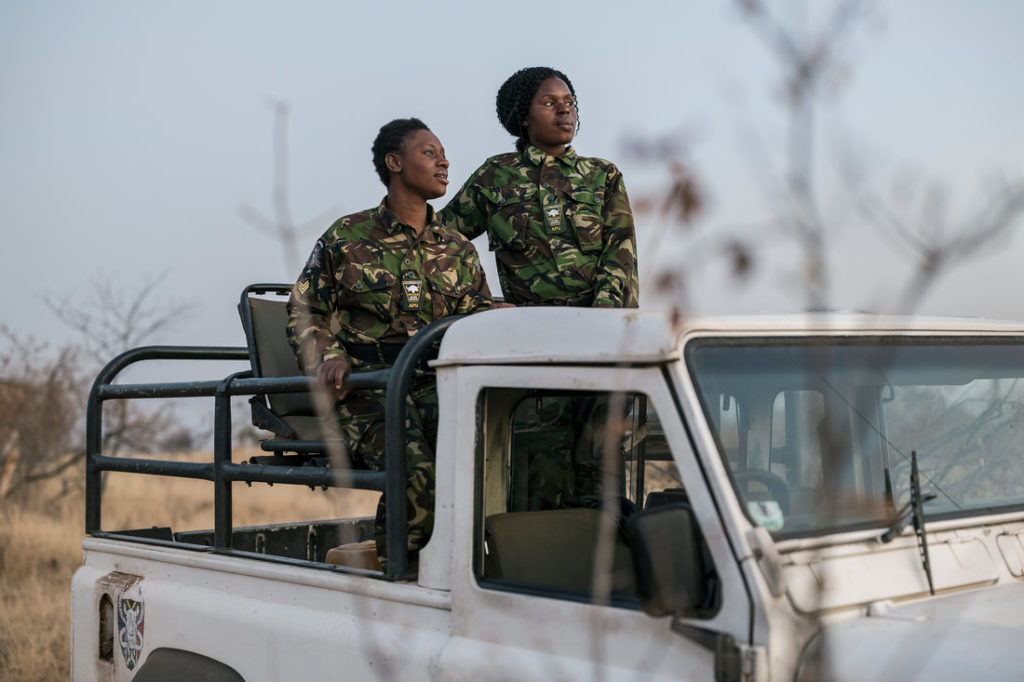There’s a famous yet informal saying: “what a man can do, a woman can do better.” Nowhere has this been more apparent than with South Africa’s first all-female anti-poaching unit.
The Black Mamba Anti-Poaching Unit are a team of incredible women that are passionate about wildlife and rhino conservation. Patrolling 50 000 hectares of the Balule Nature Reserve in South Africa’s Greater Kruger National Park, they’re doing their part to fight the actions of poachers. As swift and just as deadly as the animal they’re named after, The Black Mambas choose not to carry weapons or use force. However, they’ve been incredibly successful in protecting the large rhino population located in this area.
“We don’t want to take the life of human beings,” says Black Mambas member Collet Nogobeni, who spoke to The Red Bulletin.
“We can’t choose to protect the life of animals and then close the door on the life of a human being. If we had guns, when we saw poachers we’d want to shoot them. How could we go home and sleep after that? How could I take care of my own kids knowing that I took the life of another kid’s father or uncle? We don’t want to live in an area of offence and make widows in our community,” she continued.
Protecting the lives of animals are at the heart of this project, but so is ensuring that their communities have strong role models. There are no benefits to rhino poaching, an ethos that these women carry into their communities. Through their anti-poaching efforts, they endeavour to address the “social and moral decay” that has gripped their communities, a byproduct of poaching.
In 2020, 394 rhinos were poached, a number that’s decreased since the implementation of travel restrictions due to the pandemic. However, as South Africa eases these restrictions, the number of rhinos poached has significantly increased, perhaps due to a deprived market looking to get their hands on the prized horn.
According to Save the Rhino, poaching in South Africa is propelled by the Asian market due to the demand for rhino horn. While often used in traditional Chinese medicine, the horn has now become a symbol of wealth and success.
Anti-poaching initiatives, such as the Black Mambas have been instrumental in ensuring that the horns of these endangered animals remain out of the clutches of poachers, while simultaneously empowering women and those in their communities.
If you’d love to learn more about what these amazing women are doing, make sure to visit their website. If you’re looking to donate to this incredible anti-poaching project, visit their donation page.
Picture: blackmambas.org

